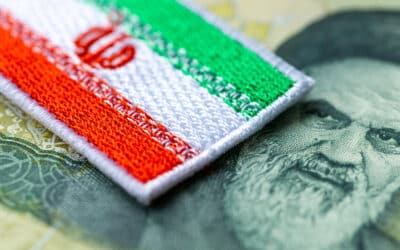One of the major turning points in social and economic understanding emerged in the 1700s with the theory of social order without human design. Before the eighteenth century, most social theory presumed or took as a working assumption that human society had its origin and sustainability in the creation of social institutions through either “divine” intervention, or by human will and plan.
But in the 1700s, the idea of society as a spontaneous order that emerged out of the actions and interactions of multitudes of individuals, each pursuing their own self-interest, began to develop into a systematic and scientific theory of human association.
Economics Born from Spontaneous Order Insight
In addition, the theory of emergent spontaneous order demonstrated that though not created by intentional plan, the social order showed coordinating pattern, structure, and self-correcting potential that often was superior in it’s beneficial effects for promoting a betterment of the human condition than any purposeful creation or direction of social processes by government could have produced.
This, more than anything, can be said to be the beginning of the development of a science of economics – a systematic analysis of the processes of interpersonal coordination of multitudes of people’s actions within a market-based system of division of labor.
As Austrian economist, Friedrich A. Hayek, observed:
“It was through asking how things would have developed if no deliberate actions of legislation had ever interfered that successively all the problems of social and particularly economic theory emerged. There can be little question that the author to whom more than any other this [development] is due was Bernard Mandeville.”
Mandeville and The Fable of the Bees
Bernard Mandeville (1670-1733) was a Dutch medical doctor, who at an early age settled in London, and spent the rest of his life in Great Britain. In 1705, he published a poem called, The Grumbling Hive, or Knaves Turned Honest, which was then republished in 1714 under the title for which it is, now, famous in the history of social and economic ideas: The Fable of the Bees, or Private Vices, Public Benefits
In this work, Mandeville challenged some of the most time-honored and sacred ideas concerning social morality and religious ethics. Whether it is the ancient Greek philosophers, such as Plato and Aristotle, or the religious teachings of the Christian faith, one of the fundamental ethical postulates has been that self-interested conduct on the part of the individual is often morally wrong and potentially “sinful.”
The presumption has been that human conduct should relinquish self-interest, especially when it concerns material acquisitiveness and wealth, and instead focus on other-oriented sacrifice for one’s fellow men and the “glory of God.” Mandeville argued that it was precisely through men pursuing their material self-interest – including “greed” and human pleasure – that all improvements in society come about.
Pursuit of Self-Interest Generates Social Prosperity
In the poem, Mandeville imagines a hive of bees that copies in its every detail and activity everything seen in human society. Greed, selfishness, the pursuit of material profit and pleasure dominate everyone in their activities and in their conduct toward others.






























